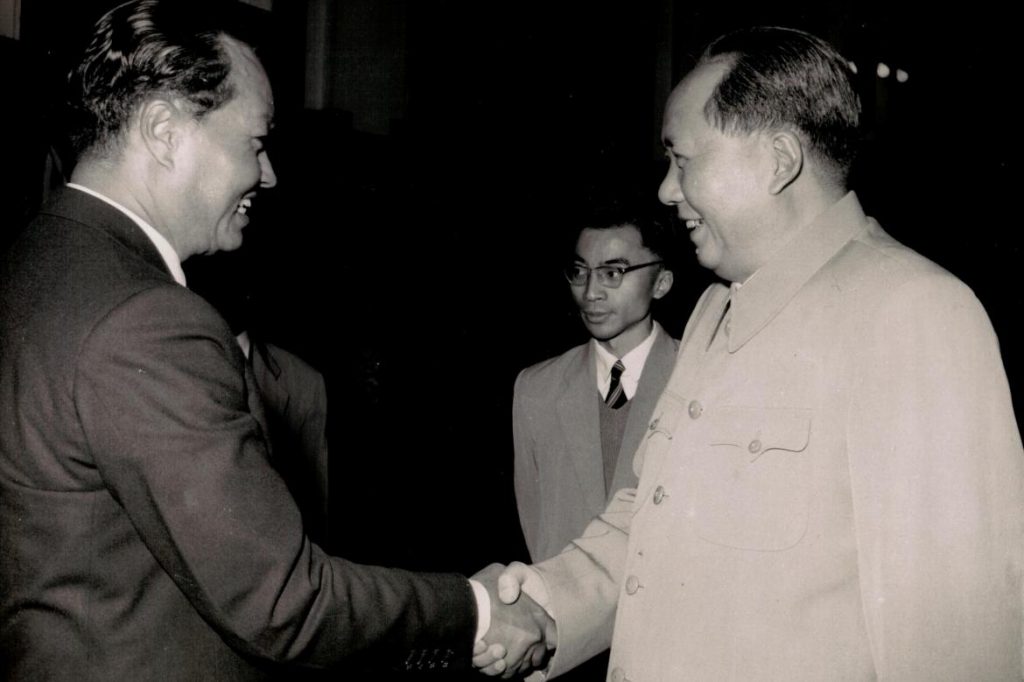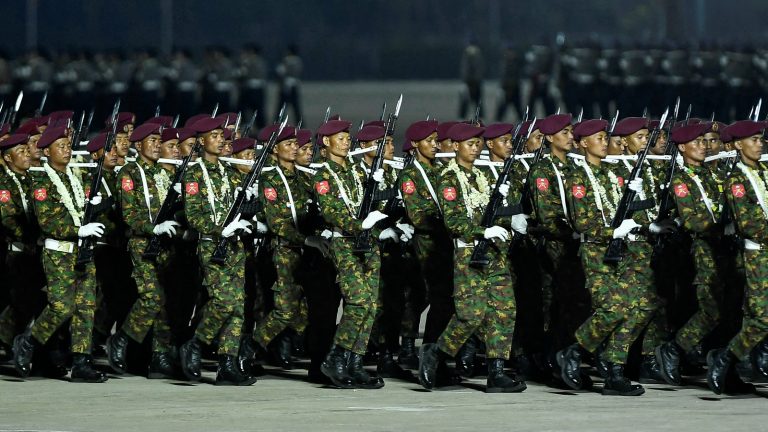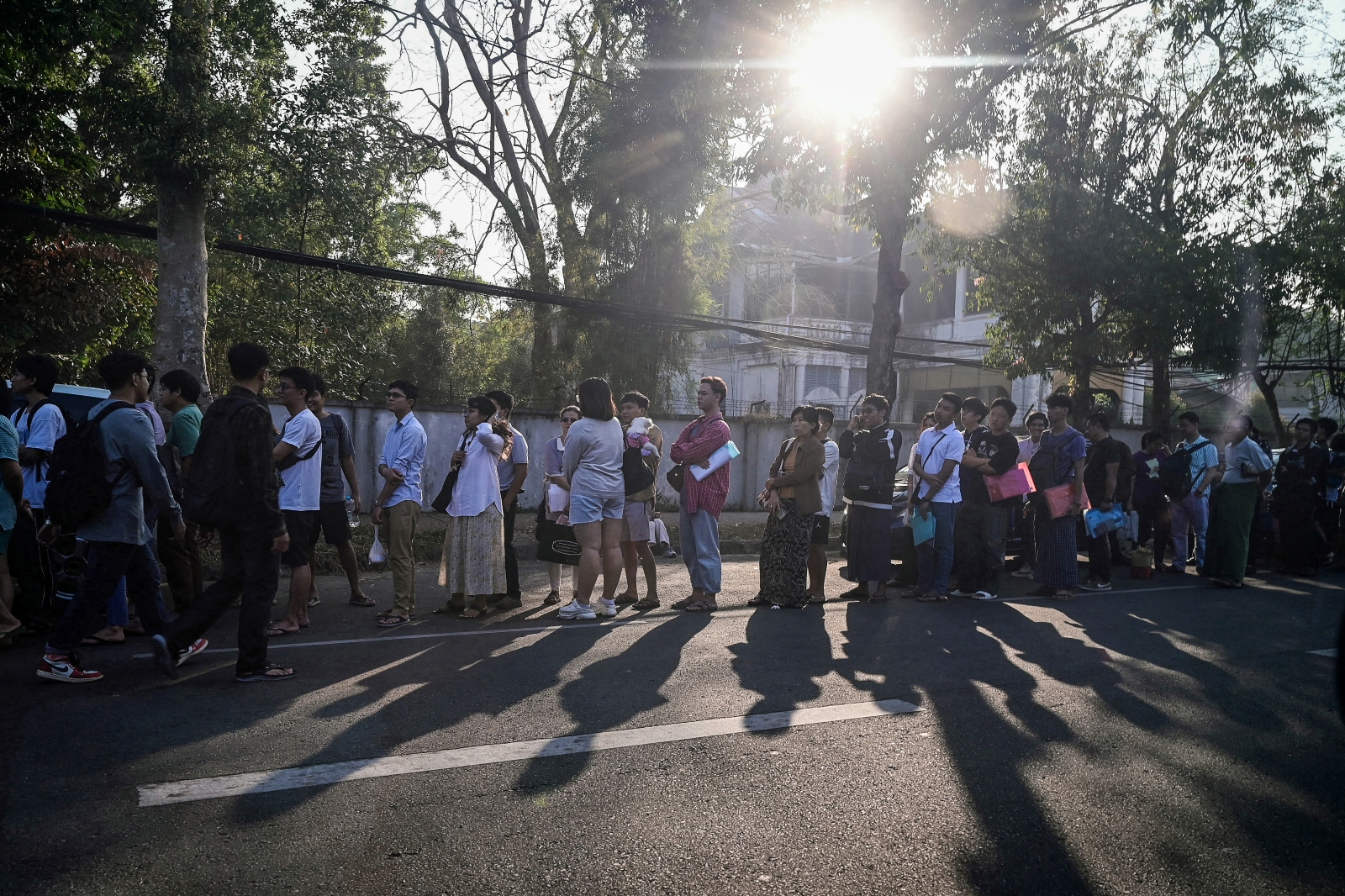Professor Robert H. Taylor’s meticulously-researched General Ne Win: A Political Biography is an important contribution to understanding the life and times of one of the dominant figures in modern Myanmar history.
Taylor, whose academic career was beginning when Gen Ne Win seized power in 1962, regrets never having met the controversial, enigmatic man who was a father of the Tatmadaw, and its leader for 26 years, and head of state for 19 years. But he knew many who did, and their accounts, together with more than 50 years of observation and research, have resulted in an impressive work of scholarship that is likely to challenge opinions about a much misunderstood man. Frontier interviewed Prof. Taylor by email.
Ne Win is often remembered for the Burmese Way to Socialism and its contribution to turning the country from one of the richest in Southeast Asian to one of the poorest. Is that a fair assessment?
As I explain in the epilogue to General Ne Win: A Political Biography, the oft repeated claim that Myanmar was one of the richest countries in Southeast Asia before the General took over in 1962 is false. As noted in Table 1 on page 544, adapted from Professor Ann Booth’s research, on a per capita GDP basis, Myanmar was poorer both before and after 1962 than the more developed economies in the region, including the Philippines, Thailand, Indonesia, Singapore and Malaysia. However, as her data also shows, and I discuss, relative to the more dynamic economies of the region, Myanmar failed to keep pace with their rates of development after 1962, and especially after the late 1970s when Japanese and Western investment flows increased to the capitalist economies of the region. So, it is not a fair assessment but the economic record of the Burmese Road to Socialism was far from a success story. Ne Win admitted that himself often in his speeches. However, you have to see the failure of the Burmese Way to Socialism in the context of the Cold War in Asia. Foreign investment and connections with the United States such as General Suharto pursued in Indonesia would have found no favour with Mao’s China.
He was a master of persuasion but also had a temper which allowed him to make some crucial decisions which he may have regretted years later.
You have said that Ne Win deserves more recognition for his efforts to prevent Burma from becoming directly involved in the Cold War tensions that affected other Southeast Asian nations. Why?
Look at the loss of lives and physical destruction in Cambodia, Laos and Vietnam during the Cold War and the hot wars between the United States and the Communist and Communist-aligned states of the region that occurred from the 1950s through to the 1980s. Similarly, look at the loss of lives in the Korean War. The Cold War in Asia was fought in the countries which border China, including, of course, India. Myanmar, thanks not only to General Ne Win but also former Prime Minister U Nu, Ambassador James Barrington, and others who shaped Myanmar’s foreign policy between 1948 and today, avoided that fate. However, in the case of General Ne Win, his choice to remain loyal to the government when the pro-Communist officers in the army went underground in 1948, and he eventually became Defence, Home and Deputy Prime Minister amongst other things, and led the fight again the Burma Communist Party and the Karen National Union. His actions did not give the United States and its allies a justification to intervene to ensure the Communists did not come to power as was happening at that time in Korea and subsequently in Vietnam.
He liked foreign travel and often took long trips abroad. In 1970 and 1971, for example, he was overseas for about three months. Why did he need to spend so much time abroad and how did it benefit Burma?
One reason he spent a lot of time abroad was because of his personal diplomacy. He was in a real sense the embodiment of Myanmar. He had to be seen and spoken with directly as he dominated his government back home. A second reason was his health. He had a number of ailments and like other heads of state then and now, he sought the best health care which at that time was primarily to be found in the West, particularly the United Kingdom and the United States. Also, he was not only head of state in the period you mention, but also head of the army, so army business would have occupied some of his time abroad. I believe General Ne Win believed in personal diplomacy and his views on regional problems, until at least the 1980s, were often sought. Also, he enjoyed travel and the delights of different places where he could play golf and relax without being pestered continually by his subordinates who deferred to his every decision.
You have cited Ne Win’s frequent foreign travel and close friendships with foreigners to debunk suggestions that he was xenophobic. Was not the 1982 Citizenship Law a manifestation of xenophobia?
In what sense is the 1982 Citizenship Law xenophobic? It is merely a law which ensures that persons whose ancestors arrived in Myanmar after 1824, when Myanmar was first colonised, and before 1948, when Myanmar became an independent state, could become full citizens if they wished. Many post-colonial societies adopted similar policies. Of course, he was concerned about the loyalty of immigrants to the country of their adoption and in this he was also like many other leaders of former colonial states which inherited significant economically powerful immigrant communities from the colonial period. If you read what he said at the time of the passage of the act, which I quote at length in the book, he explains how it was incumbent on the indigenous population to accept the immigrants amongst them as full citizens who were integrating into Myanmar’s society. He never made or would have tolerated the kind of nonsense about immigrants for which US presidential candidates receive applause.
The citizenship law followed the nationalisation of businesses after the seizure of power in 1962. Did Ne Win ever express any remorse for the financial distress and emotional pain of those who lost their property and assets because of the nationalisation of the economy?
Support more independent journalism like this. Sign up to be a Frontier member.
One of curious aspects of the Burmese Road to Socialism is how while businesses were nationalised, people’s private personal property was not confiscated. The old Yangon elite, many of whom became wealthy under the British or as a result of their role in government after independence, who had their businesses nationalised kept their sumptuous homes in Golden Valley and along Inya Road and elsewhere. After 1988, they or their children sold the valuable land or still retain the houses. When people whom he locked up for opposing his rule, such as Bo Let Ya, Dr Ba Maw and U Kyaw Nyein were imprisoned, their families remained in their homes and kept their cars, which were restored to them when they were freed. As he once said, “We will have to keep the rich people where they are. However, rich people will have to allow the lives of poor people to improve. In that process, the bourgeoisie might become less wealthy than they were, but they won’t become poor people.” He often employed the former owners of businesses to work in them after they were nationalised, realising perhaps that they had the skill to do so.
What do you think Ne Win would have regarded as being his greatest achievement?
As with the Myanmar expression, I am unable to say. It could have been his leadership in the construction of the Myanmar army, or his role in steering the country through the vicissitudes of the Cold War and thus keeping the Myanmar people away from the danger of international conflict. In the end, perhaps he did not consider he had a greatest achievement. In his resignation speech in July 1988, he admitted the socialist revolution was a failure. He is reported by U Chit Hlaing as saying in retirement that if he could do it again, he would not have ordered the coup on 2 March 1962. Of course, such reminiscences are often the stock of the elder as they consider life’s could have beens and might have beens.
Ne Win was a prominent member of the 30 Comrades, a predecessor of the Tatmadaw. He was the country’s military leader for 26 years and its head of state for 19 years. Yet when he died in 2002, the military government imposed a media ban on any mention of his name. Why do you think it did not want his death to be reported?
There was not a complete ban on his name at the time of his death. His family published a statement in the press of the event. Books continued to note his role in Myanmar’s history. However, you are right to note that there was no state funeral, no public eulogy and no monument in his memory. In part, that was at his own desire. He requested his body be cremated quickly after his death. In that, he was perhaps a better Buddhist than many. It may have been an effort by the government and the army to distance themselves from his legacy and memory. However, others of his generation who played prominent roles in the past, have also been put to rest without great public fanfare. Only the former royalty and persons of high political symbolism at the time of their death, such as U Thant, Thakin Kodaw Hmaing, or Daw Khin Gyi have received such treatment other than, of course, General Aung San.
Your academic career began as an undergraduate in 1961-62, when Ne Win seized power. As a specialist on Myanmar, he has been one of the dominant figures in your professional life and the inspiration for the political biography that was the catalyst for this interview. What kind of a man do you think he was? What feelings do you have about him?
After observing, from a distance, his life and times for more than fifty years, I cannot answer the first question. He was many things to many people. Like all of us, his doubtless learned and changed over time. He was a master of persuasion but also had a temper which allowed him to make some crucial decisions which he may have regretted years later. Haven’t we all? He was also able to think long and hard about problems and issues crucial to his country’s security and stability. He had to make judgements sometimes knowing he did not know all he needed to know to make them. I wrote the book to try to understand him. I regret I never met him. I have known many people who did know him and even people he locked up or opposed in other ways usually spoke respectfully of him. They saw him as a man of his times and an honest, sincere, and dedicated patriot. That is what I have tried to show in the book. It is not for me to judge him. I tried to understand him and the society he created that I once lived in. Perhaps like many people who live a long time, I find much not to like in the new, post-Ne Win Myanmar, just as I found much to dislike when I lived in Ne Win’s Myanmar. However, I also find much, though perhaps less, to like now than I did then.
General Ne Win: A Political Biography was published earlier this year by the Institute of Southeast Asian Studies in Singapore, where Professor Taylor is a visiting research fellow.







